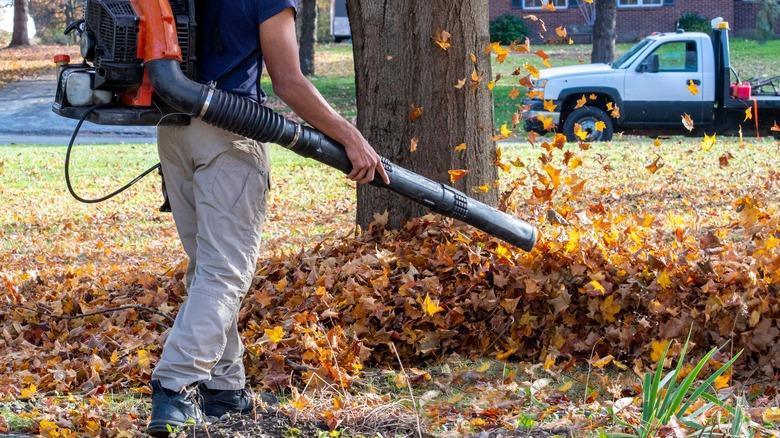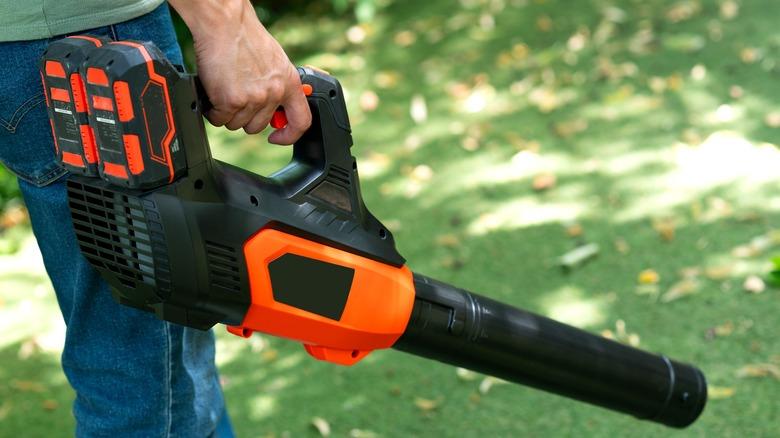The Best Time To Use A Leaf Blower To Avoid A Neighborly Spat
We may receive a commission on purchases made from links.
Like family, you don't get to choose your neighbors, and you are stuck with them until somebody dies (or moves). In some respects, the struggle that is having neighbors is even worse than with family, because avoiding them is trickier. So unless you're resigned to a life of peeking through the blinds before leaving your house, it's best to be neighborly.
Nothing destroys neighborhood peace quicker than messing with someone's sleep. This may bring to mind raucous house parties that last late into the night, but doing noisy yard work too early is equally annoying for neighbors. While they may not call the cops on you, they could report you to the HOA, and may have every right to do so. Your neighborhood, city, or state could have noise ordinances in place that mean hefty fines for rulebreakers. These ordinances often ban the use of loud equipment like leaf blowers and lawn mowers before or after specific times, and may even ban usage altogether on certain days or holidays. But even without any noise regulations in place, etiquette states that the neighborly thing is to wait until at least 8:00 AM on weekdays and 9:00 AM on weekends to use your leaf blower.. Most people agree that going earlier than that specific weekday time is rude, but some will argue that any earlier than 10:00 AM on a weekend is still too early, however.
Fortunately, waiting until later in the day to blow your leaves is beneficial to you, as well as your neighbors. Leaf blowers work much more efficiently when leaves are dry, so allowing the morning dew to evaporate could save you time and energy.
How to be a neighborly leaf-blower
Neighborly leaf blowing doesn't end with waiting for a certain time of day, but also with where you blow the leaves. It's fairly obvious you shouldn't blow the leaves into your neighbor's yard, but you should also avoid blowing them into the street. Leaves in the street are a safety hazard, creating a stumbling block for cyclists and pedestrians. Leaves block storm drains, leading to potential flooding that could damage your (or your neighbor's) property. And decomposed leaves in storm drains can even affect your area's water quality. Proper leaf-blowing etiquette is to blow the leaves into piles in your own yard, and dispose of them in yard waste bags. Or a compost bin, if you have one.
You should also avoid blowing leaves around people or pets out for a stroll. Point the nozzle down and wait for them to pass — or better yet, turn off the blower altogether. The leaf blower can be incredibly loud at a short distance, and while you may be wearing ear protection, your neighbors won't be. And then there's the chance you could accidentally spray them with leaves and dirt.
The type of leaf-blower you own also matters. Some local ordinances prevent the use of gas blowers due to the pollution they create. Gas leaf blowers also tend to be much louder than electric blowers. Your area may have a limit on the number of decibels (listed as noise level in the product information) your blower can emit. If you don't want to be gossiped about in the neighborhood Facebook group, check all your local regulations (and watch the clock) before using a leaf blower.

